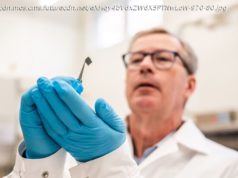Uber and Grab have been hit with combined fines of $9.5 million after their merger deal was found to have violated Singapore’s anti-competition laws. Grab acquired (and then merged/closed) Uber’s Southeast Asia business in March, but the Competition Commission of Singapore today declare…
Uber and Grab have been hit with combined fines of $9.5 million after their merger deal was found to have violated Singapore’s anti-competition laws.
Grab acquired (and then merged/closed) Uber’s Southeast Asia business in March, but the Competition Commission of Singapore today declared the deal is “anti-competitive” following a months-long investigation into its impact on Singapore.
The CCCS levied an SG$6,582,055 (US$4.8 million) fine on Uber and an SG$6,419,647 (US$4.7 million) fine on Grab, but it won’t unwind the deal, which had been an option. The fines relate only to the businesses in Singapore, which is just one of eight markets where Uber and Grab competed. Grab has raised $6 billion from investors so it shouldn’t have an issue paying that back.
Chiefly, the CCCS found that Grab had raised prices by 10-15 percent following the deal, whilst its market share grew to 80 percent. That’s despite Grab co-founder Hooi Ling Tan claiming that there is still plenty of competition across Southeast Asia.
“At the conclusion of its investigation, CCCS has found that the Transaction is anti-competitive, having been carried into effect, and has infringed section 54 of the Competition Act by substantially lessening competition in the ride-hailing platform market in Singapore,” the agency wrote .
Grab, which is valued at $11 billion and is pushing itself as an all-in-one ‘super app,’ wasn’t legally compelled to notify the CCCS of its deal with Uber. But the commission does warn companies to consider reaching out it if the deal in question leaves the merged entity with upwards of 40 percent market share, or the post-merger combined market share of the three largest firms is 70 percent or higher. Grab contacted the CCCS only after the deal was announced.
It’s worth noting that the Philippines, the only other Southeast Asia country to launch an investigation into the deal, approved the merger without repercussions last month.
Through its investigation, the CCCS engaged with Grab to make a number of requests on its business, they included restoring its pre-deal pricing and commission rates, cutting exclusivity agreements with taxi operators, and removing lock-in for drivers that use its rental partners or Uber’s Lion City Rentals business. Those are broadly the same again — and the commission did note that Grab had changed its loyalty program post deal.
“Mergers that substantially lessen competition are prohibited and CCCS has taken action against the Grab-Uber merger because it removed Grab’s closest rival, to the detriment of Singapore drivers and riders. Companies can continue to innovate in this market, through means other than anti-competitive mergers,” CCCS chief executive Toh Han Li said in a statement.
In keeping with recent traditional around CCCS statements, Grab produced a lengthy response of its own. One part to highlight is its apparent insistence that the merger deal did not significantly impact competition.
“Grab had, with its advisers, assessed that the transaction would not result in a substantial lessening of competition,” so said Daren Shiau, who is co-head of Allen & Gledhill’ s Competition & Antitrust practice, one of the firm’s that Grab retained.
Shiau’s statement is something that the 80 percent market share stat suggests is untrue. No doubt many consumers and drivers, who today have fewer options, will also disagree with.
Here’s Grab’s full statement in all of its glory:






